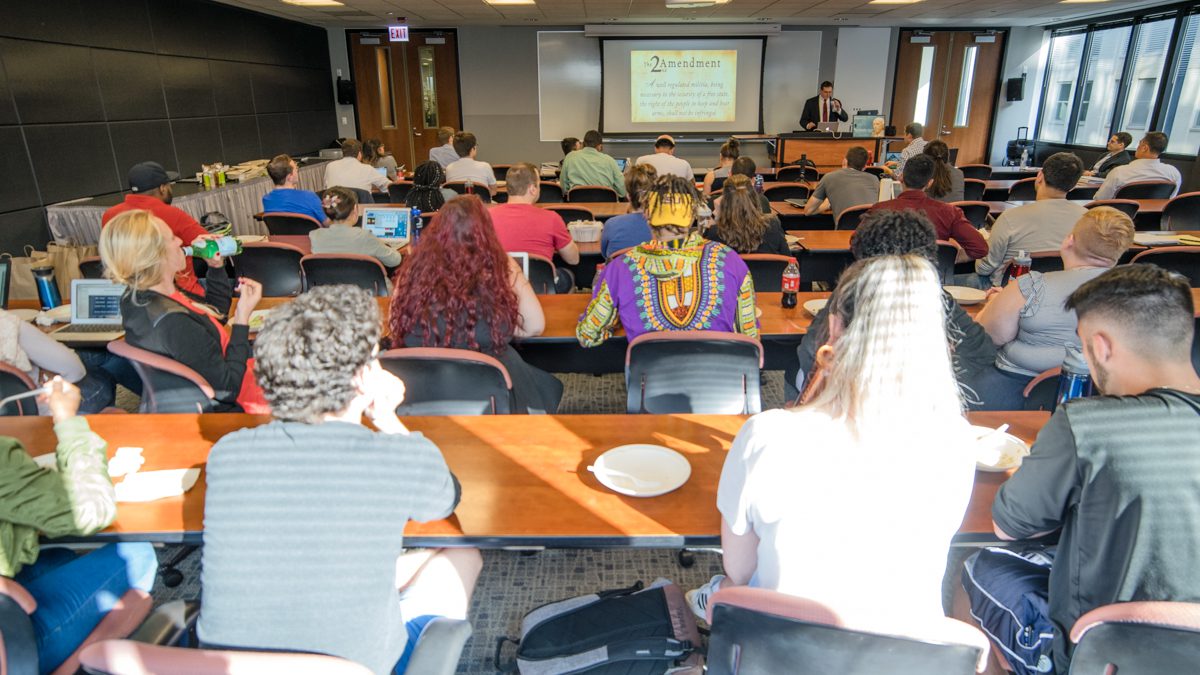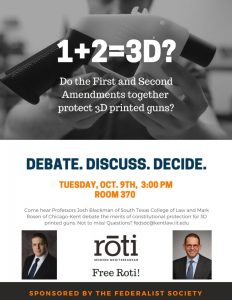 On October 9, 2018, our Federalist Society hosted an event with Professor Josh Blackman of South Texas College of Law and Chicago-Kent’s Professor Mark Rosen to discuss the constitutional merits of using the First and Second Amendments to address 3D-printed guns.
On October 9, 2018, our Federalist Society hosted an event with Professor Josh Blackman of South Texas College of Law and Chicago-Kent’s Professor Mark Rosen to discuss the constitutional merits of using the First and Second Amendments to address 3D-printed guns.
Professor Blackman has represented Defense Distributed, the company that developed and released the files for the Liberator gun design, as they’ve been litigating the case over 5 years.
The full video of this event is embedded below, following the discussion section.
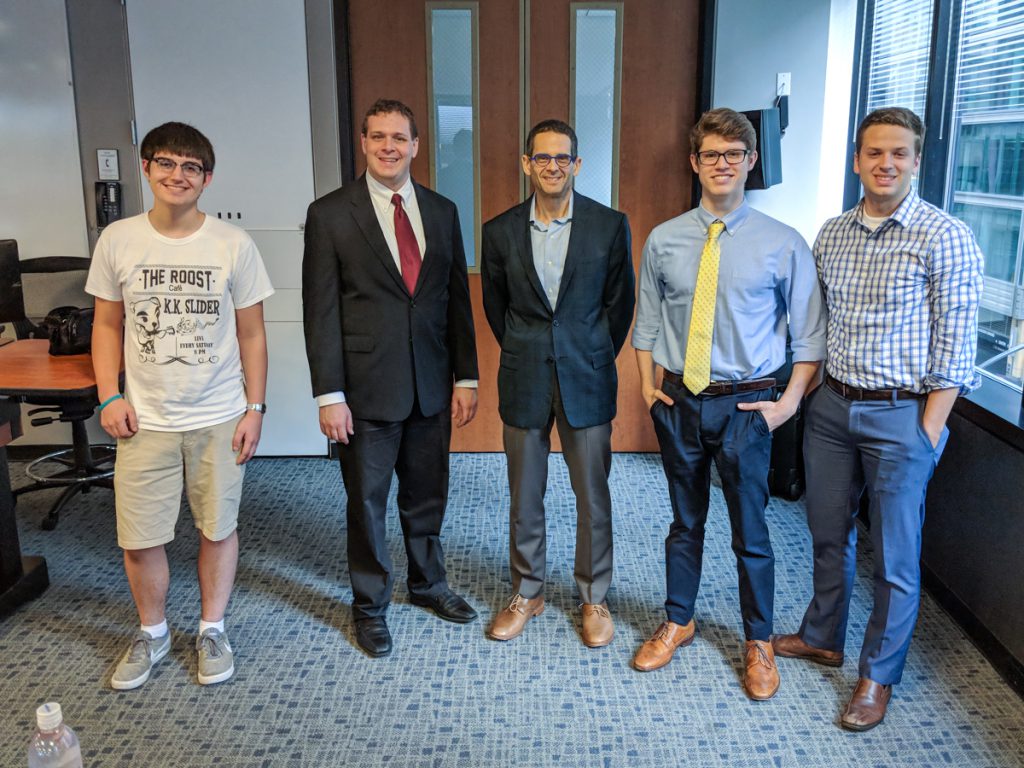
Constitutional Issues
Professor Blackman’s presentation began with an overview of 3D printing technology, then moved to the history of homemade firearms. Using the First and Second Amendments, he discussed the right to acquire arms, the right to create guns, and the impact of “hybrid rights” on the constitutionality of this case.
 Professor Rosen responded by reviewing exceptions to First Amendment rights and reviewing whether there could be sufficiently compelling governmental interest to justify restricting access to 3D gun plans.
Professor Rosen responded by reviewing exceptions to First Amendment rights and reviewing whether there could be sufficiently compelling governmental interest to justify restricting access to 3D gun plans.
Professor Rosen noted this technology would increase access to gun creation compared to the types of homemade guns Professor Blackman described, possibly even more so in the future as 3D printers and the plastics used by them continue to develop and become more widely accessible.
As he questioned the constitutional issues in this specific case, Professor Rosen said the right to purchase a gun wouldn’t automatically include the rights for anyone to manufacture guns when they are commercially available.

Professor Blackman agreed that the right to manufacture was not as well settled, but said the threshold question is the right to share information about how to make the guns.
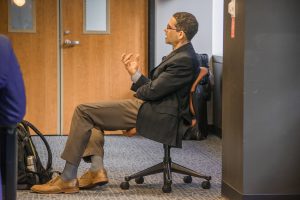
Professor Rosen agreed it would be difficult to enforce a ban or write a law that wouldn’t be overly broad in its description, but said he doesn’t believe it’s absolutely unregulatable as a matter of principle.
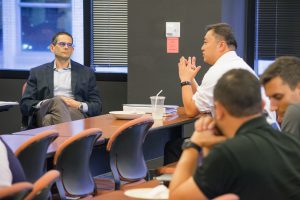
One member of the audience noted that he has a license to sell firearms and emphasized that current regulations about the manufacture of guns apply to 3D-printed guns: The firearm must have a certain percentage of metal in the final product and can only be made for personal use, not for sale. As a dealer, he said he had no interest in 3D-printed guns because it would be cheaper to buy parts and tools to create a real gun.
Other questions concerned the arguments for compelling interests in the Liberator case and the legality of manufacturing other types of firearms or creating guns that could go through metal detectors. Professor Blackman noted that bullets would be more likely to set off detectors than any nontraditional firearms.

